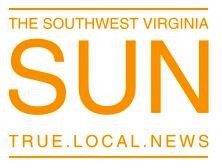A few employers in Southwest Virginia will soon be paying a portion of their employees’ child care expenses in much the same way many employers offer medical and other benefits. A new pilot program, the Employer Sponsored Child Care Benefit Program, is an effort by manufacturers to get back to full production and revive flagging workforce participation.
Lawrence Brothers in Bluefield, Paul’s Fans in Big Rock, and Universal Fibers in Bristol will work with United Way of Southwest Virginia to develop the program including eligibility guidelines and how the funds will flow from the employers to their employees’ child care providers.
The employers won’t have to foot that entire bill themselves. Private foundations and other funders will match the employers’ funding under the auspices of the United Way of Southwest Virginia. “Employers are eager to put skin in the game. They know better than anyone else what their own needs are,” said United Way of Southwest Virginia President and Chief Executive Officer Travis Staton. “At the same time, organizations like Thompson Charitable Foundation have shown time and time again their own desire to see Southwest Virginia’s families, businesses and communities thrive.”
The GO Virginia Board approved its share of funding for the program, $269,406, at its June 14 meeting in Richmond. While GO Virginia funding will not go directly toward paying for childcare costs, it will help to launch, build and establish the program. GO Virginia will fund assessments in 13 communities, and fund efforts to monitor data on performance and effectiveness. The employers will track progress and outcomes of employee retention and satisfaction for participating. GO Virginia will also help fund a United Way of Southwest Virginia shared services effort to help cut child care centers’ costs.
In advocating for passage of the motion to fund the program, GO Virginia Board Member Jim Dyke said, “I have always said if I could only invest in one program in education this would be it. This is the beginning of the pipeline. Employers see how important child care is, and this is a great way of getting people back into the workforce, especially women.”
One of the first businesses to commit to the program was Universal Fibers. “When we were first approached by United Way about this, we were all ears,” said Rick Nunley, Universal Fibers director of Human Resources. “We’d lost employees who had been working parents, and we were being impacted by an overall labor shortage that was caused in part by many more people being unable to find affordable child care. Every company now is looking for – or looking to keep – that right associate they want to build a nest with and grow long-term. And, child care is one of the top factors people are considering in deciding whether to get back into the workforce, or considering whether they’re at the right employer. So, we see this as a competitive advantage that gives us a leg up in the ability to have a quality employee choose to be – and stay – with us.”
The potential positive impact isn’t limited to the individual companies, said Todd Elswick, president, Paul’s Fans. The economic development impact will be felt by communities that are trying to rebuild their population bases. “Paul’s Fans is 64 years old this year. I have been in this business my whole life, and I have been shouting ‘child care’ from the mountaintops for years. What’s really affecting us is the actual employment pool: the young professionals we are trying to attract from outside the region – when they get here, their moms and dads won’t be here to watch the kids, so we feel it’s absolutely necessary that they have available, affordable child care.”
Employers hope the program will reverse the decline in workforce participation by women, which, according to research by the Federal Reserve Bank of Richmond, declined 7.5 percent at the start of the pandemic and remains 4 percent below pre-pandemic levels. At the same time, the cost of providing childcare has risen at a faster rate than employment, meaning some households have found it more cost-effective to have one parent, usually the mother, provide childcare at home. And, it’s not just women who’ve left the workforce entirely, said Courtney McCowan, manager of Community Outreach and Compliance at Paul’s Fans. “We have wives that are going down to part-time because of child care.” Those hours, McCowan said, are hard to replace.
“This innovative program has the opportunity to address today’s child care situation and provide employers incentives to develop new enhanced and competitive benefits programs,” said Melanie Protti-Lawrence, president, Lawrence Brothers, Inc. “Ultimately, this can help Southwest Virginians get back to work while attracting new talent to the region.”
One benefit of working through United Way of Southwest Virginia is that the program will cover the entire region. Driving distance from Bluefield to Big Rock to Bristol is around 165 miles. GO Virginia Board Member Ben Davenport told his colleagues, “United Way of Southwest Virginia covers Southwest Virginia like the dew.”
The businesses in the pilot program will begin with a two-year commitment, while additional funding is being sought to bring on the next group of businesses. “The hope is that after the first two years, these businesses will see the value in providing the full benefit themselves, and that we can move the funding that’s been going to them, along with new funding, to the next group of employers,” Staton said.
That’s fine with the companies taking part in the pilot program. “We know it’s a temporary subsidy that the company will engage in with United Way of Southwest Virginia, but we look at it as a long-term investment,” Nunley said. “It’s the right thing to do, and we’re excited about incorporating this into our company.”





